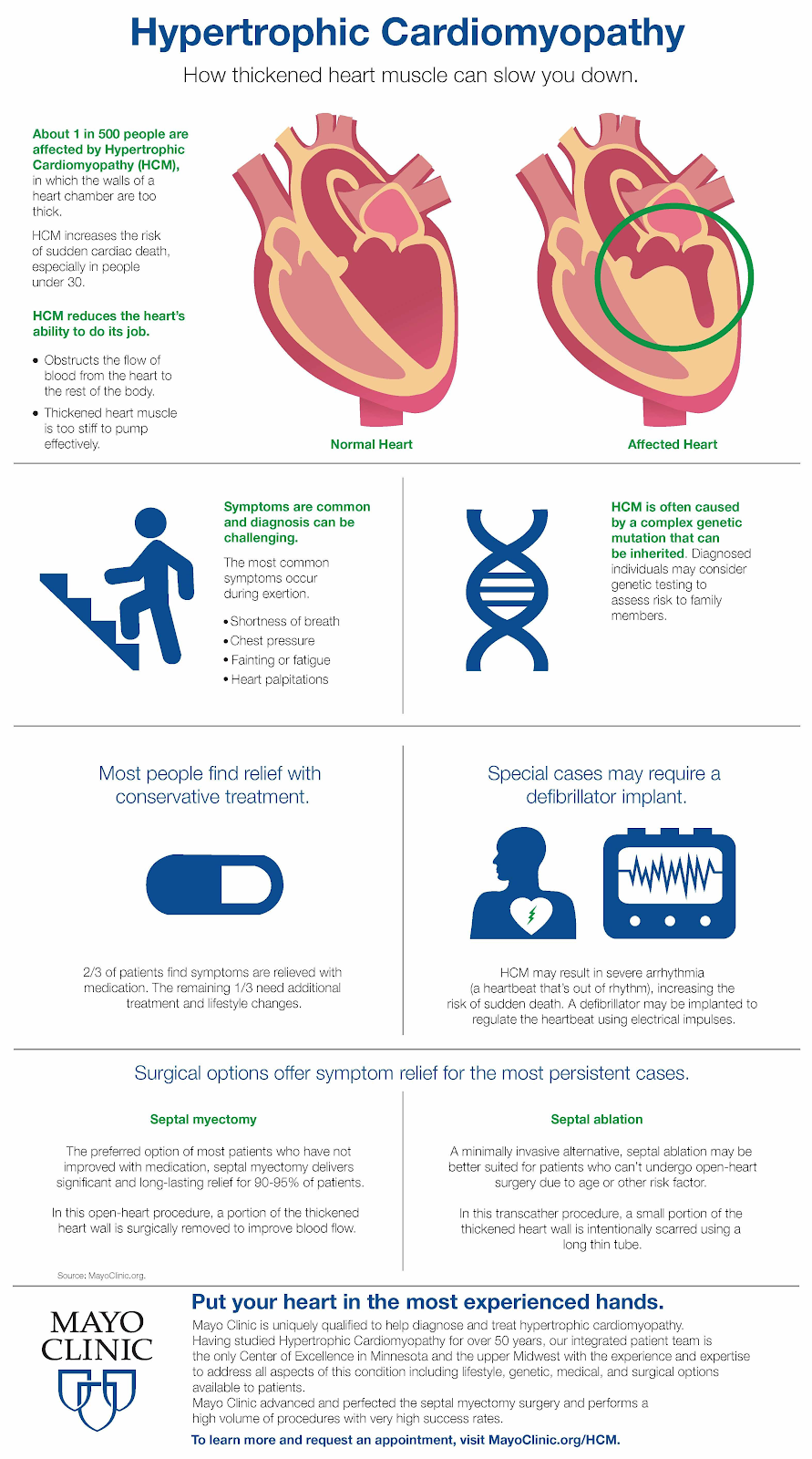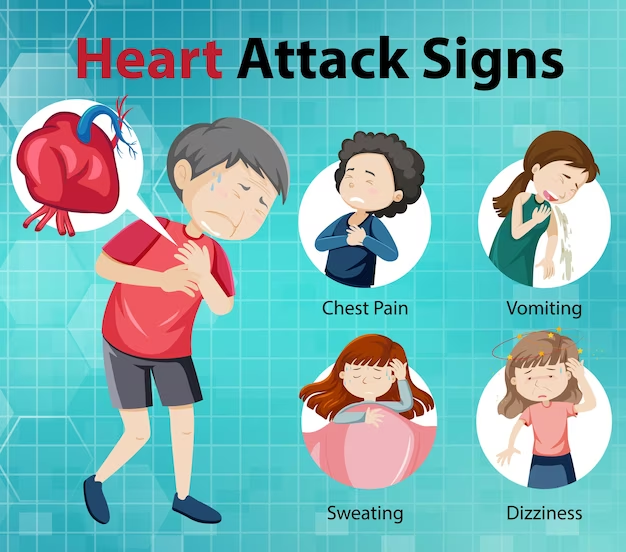Hypertrophic cardiomyopathy ( HCM )
Hypertrophic Obstructive Cardiomyopathy (HOCM) is a complex cardiac condition characterized by the thickening of the heart's muscle wall, primarily affecting the left ventricle, left ventricle stiffness, Mitral valve changes and cellular changes. This condition can hinder the heart's ability to pump blood efficiently and might lead to various symptoms and complications.
Incidence ;
Hypertrophic cardiomyopathy affects an estimated 600,000 to 1.5 million Americans or 1 in 500 people. It’s more common than multiple sclerosis, which affects 1 in 700 people.
Can I get Pregnant if I have Hypertrophic cardiomyopathy (HCM)?
Although pregnant people with hypertrophic cardiomyopathy may need specialized care, such as echocardiography, most can support pregnancy and have a vaginal delivery. If you’re considering becoming pregnant, discuss your risks with your healthcare provider. Your provider can tell you which medicines for hypertrophic cardiomyopathy you can keep taking during your pregnancy. You may also be able to get a pacemaker or an implantable cardioverter defibrillator (ICD) if you need one during pregnancy.
Causes ;
The exact cause of HOCM is unknown, but there are a number of factors that may contribute to the development of the condition, including:
- Genetic mutations that affect proteins in the heart muscle.
- Autosomal dominant inheritance pattern.
- Mutations in genes encoding sarcomere proteins.
- High blood pressure.
- Aging
- Often a familial condition, but sporadic cases can also occur.
Symptoms ;
Some people with hypertrophic cardiomyopathy don’t have symptoms while others may only feel symptoms with exercise or exertion.
Knowing the signs and symptoms of HCM is important. It can help with getting an early diagnosis when treatment may be most effective.
Signs and symptoms of HCM include:
- Chest pain, especially with physical exertion
- Shortness of breath, especially with physical exertion
- Fatigue
- Arrhythmias (abnormal heart rhythms)
- Dizziness
- Lightheadedness
- Fainting (syncope)
- Swelling in the ankles, feet, legs, abdomen
HCM is a chronic disease that can get worse over time. This can lead to poorer function and quality of life, long-term complications and more financial and social burden.
Associations ;
As HCM progresses, it can cause other health problems ;
Atrial fibrillation ; This can lead to blood clots, stroke and other heart-related complications.
Sudden cardiac Arrest and Sudden cardiac death ; Sudden cardiac arrest is a sudden loss of heart function caused by a dangerously fast heartbeat (ventricular tachycardia). If this happens, people need emergency treatments — including CPR and defibrillation as soon as symptoms start. If they don’t get the treatments they need, sudden cardiac death can occur.
However, hypertrophic cardiomyopathy is the most common cause of sudden cardiac death in people under age 35 especially in young athletes .
Heart Failure ; If you have heart failure, It means your heart doesn’t pump as well as it should. Symptoms of heart failure include:
- Difficulty breathing (shortness of breath).
- Feeling tired (fatigue) when you’re active.
- Swelling in your ankles, legs and abdomen.
- Need to urinate while resting at night.
- Dizziness, confusion, difficulty concentrating, fainting.
- Feeling that your heart is beating too fast (palpitations).
- A dry, hacking cough.
- A full (bloated) or hard stomach, loss of appetite, or upset stomach.
- Electrocardiogram (ECG) to detect abnormal heart rhythms.
- Stress tests to observe heart function during exercise.
- Cardiac MRI for detailed images of the heart's structure.
- Genetic testing to identify mutations in relevant genes.
Lifestyle modifications: Avoiding excessive physical exertion and dehydration.
Medications to manage symptoms and improve heart function:
- Beta-blockers to slow heart rate and reduce strain.
- Calcium channel blockers to relax and widen blood vessels.
- diuretics
- Anti-arrhythmic drugs to control irregular heartbeats.
May improve symptoms and function ,
- Myosin Inhibitor like Mavacamten
the cardiac myosin inhibitor mavacamten (Camzyos) is a new type of medication used to improve symptoms and function in patients with the obstructive type of HCM who have mild to moderate symptoms with activity.
Surgical Procedures ;
A range of surgical and nonsurgical procedures can be used to treat HCM:
- Septal Myectomy; Septal myectomy, also called septal reduction therapy, is open-heart surgery. Surgical removal of a portion of the thickened heart muscle.
- Alcohol Septal Ablation; Also called nonsurgical septal reduction therapy, Injecting alcohol into a specific artery to reduce the thickened muscle.
- Cardiac implantable electronic devices (CIEDs) ; Several types of devices can be implanted in the body to help the heart work better, including:
- Implantable cardioverter defibrillator (ICD) – An ICD helps maintain a normal heartbeat by sending an electric shock to the heart if an irregular heartbeat is detected. This reduces the risk of sudden cardiac death.
- Pacemaker – This small device uses electrical pulses to prompt the heart to beat at a normal rate. This is used for people with a heart rate that is too slow.
- Cardiac resynchronization therapy (CRT) device – This device coordinates contractions between the heart’s left and right ventricles.
- Heart Transplant
Prognosis ;
The long-term outcome for people with HCM is very good and most patients with HCM have normal life expectancy without significant limitations or complications.
A small number of people with HCM, however, are at risk for complications including heart failure and sudden death. The risk of heart complications can vary between families and among different members of the same family, so it’s important that your health care team identifies people who are most at risk for these complications so preventative treatment can be provided.
Conclusion ;
HOCM is a serious condition, but it can be managed with treatment. With proper care, most people with HOCM can live a normal life.
Here are some additional tips for managing HOCM:
Get regular exercise: Exercise can help to strengthen the heart and improve its pumping function
Lose weight: If you are overweight or obese, losing weight can help to reduce the strain on your heart.
Avoid caffeine and alcohol: Caffeine and alcohol can worsen the symptoms of HOCM.
Quit smoking: Smoking can damage the heart muscle and worsen the symptoms of HOCM.
Get regular checkups: It is important to see your doctor regularly to monitor your condition and adjust your treatment plan as needed.
If you have any concerns about HOCM, please talk to your doctor.
weeklyhealinghealth.blogspot.com
https://rumble.com/v3d88p2-sudden-collapse-in-athletes-top-2-warning-sign.html






Comments
Post a Comment